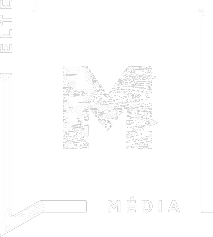Conflicts between fundamental rights, the Government’s subsidized speech and the public interest in Hungary
Attila Bátorfy
ELTE Faculty of Humanities, Department of Communication and Media
Captured Media Researching Media Systems in and after Transitions
Universidade Católica Portuguesa, Lisbon, 6th December 2022
ELTE Faculty of Humanities, Department of Communication and Media


February 2022








February 2022

February 2022

March 2022












3. April 2022


Pro-government media
around 500 media titles
How can I avoid them?
Do I have the right to avoid them?
right to speak
right to listen
right against
coerced speech
right against
compelled listening
right against
compelled listening
Corbin, Caroline Mala 2009. The First Amendment Right Against Compelled Listening. Boston University Law Review, vol. 89, pp. 939–1016.
protection against the Government
captive audience doctrine
exit closed
exit closed
exit closed
Does the Government have right to speak?
BUT
direct
indirect
-
subsidies
-
paid content
-
advertising
media
civil organizations
cultural institutions
Does the Government have right to speak?
Yes
No
subsidized speech
Yes, but
Merrill, 1973
-
Post, 1995
-
Redish and Kessler, 1996
-
Fiss, 2013
-
Kamenshine, 1979
-
Yudof, 1983
-
Mayton, 1994
-
Heymann, 1995
-
Blocher, 2015
all subsidized speech is coerced or rewarded
good and bad subsidies
good and bad subsidies
Does the Government have right to shape te media market?
Yes
No
through policies or subsidies?
-
Bagdikian, 1983
-
Altschull, 1984
-
Picard, 1985
-
Chomsky and Herman, 1988
-
Hoynes and Croteau, 2013
-
Siebert et. al. 1956
The Orbán Govt uses the very same "leftist" arguments!
In the case of Hungary, subsidized speech is not compelled or coerced.
does not infringe the right against compelled speech
but subsidized speech
infringes the right against compelled listening
by intensifying pro-Govt messages vertically and horizontally
majoritarian entrenchment
Shinar, Adam 2020. Democratic Backsliding, Subsidized Speech, and the New Majoritarian Entrenchment. In The American Journal of Comparative Law, Vol. 69, Issue 2, pp. 335–385
pro-government media
Recommendations
-
stopping state advertising for two years, because this is the basis of the viability of propaganda media
-
political advertising based on "factual" claims should fall under commercial advertising regulation
Literature
- Bátorfy, Attila & Ágnes Urbán 2020. State Advertising as an Instrument of Transformation of the Media Market in Hungary.
East European Politics, vol. 36, no. 1, pp. 44–65. - Besley, Timothy & Andrea Prat 2006. Handcuffs for the Grabbing Hand? Media Capture and Government Accountability.
American Economic Review, vol. 96, no. 3, pp. 720–736. - Blocher, Joseph 2015. New Problems for Subsidized Speech.
William & Mary Law Review, vol. 56, pp. 1083–1118. - Corbin, Caroline Mala 2009. The First Amendment Right Against Compelled Listening.
Boston University Law Review, vol. 89, pp. 939–1016. - Di Tella, Rafael & Ignacio Franceschelli 2011. Government Advertising and Media Coverage of Corruption Scandals.
American Economic Journal: Applied Economics, vol. 3, no. 4, pp. 119–151. - Gehlbach, Scott & Konstantin Sonin 2008/2014. Government Control of the Media.
Journal of Public Economics, vol. 118, pp. 163–171. - Heyman, William J. 1999. State Supported Speech.
Wisconsin Law Review, pp. 1119–1199. - Kamenshine, Robert. D. 1979. The First Amendment Implied Political Establishment Clause.
California Law Review, vol. 67, pp. 1104–1153. - Karppinen, Kari 2006. Media Diversity and the Politics of Criteria Diversity Assessment and Technocratisation of European Media Policy.
Nordicom Review, vol. 27, no. 2, pp. 53–68. - Mayton, William L. 1994. Buying up Speech: Active Government and the Terms of the First Amendment and the Fourteenth Amendments.
William & Mary Bill of Rights Journal, vol. 3, no. 2, pp. 373–418. - Post, Robert C. 1996. Subsidized Speech.
The Yale Law Journal, vol. 106, no. 1, pp. 151–195. - Shinar, Adam 2021. Democratic Backsliding, Subsidized Speech, and the New Majoritarian Entrenchment.
The American Journal of Comparative Law, vol. 20, pp. 1–51. - Szeidl, Ádám & Szűcs, Ferenc 2021. Media Capture Through Favour Exchange.
Econometrica, vol. 89, no. 1, pp. 281–310. - Yudof, Mark. G. 1983/2009. When Government Speaks. Politics, Law and Government Expression in America.
Berkeley, Los Angeles: University of California Press.
Thank you!
batorfy.attila@btk.elte.hu
Conflicts between subsidized speech and the public interest
By Attila Bátorfy
Conflicts between subsidized speech and the public interest
- 815



